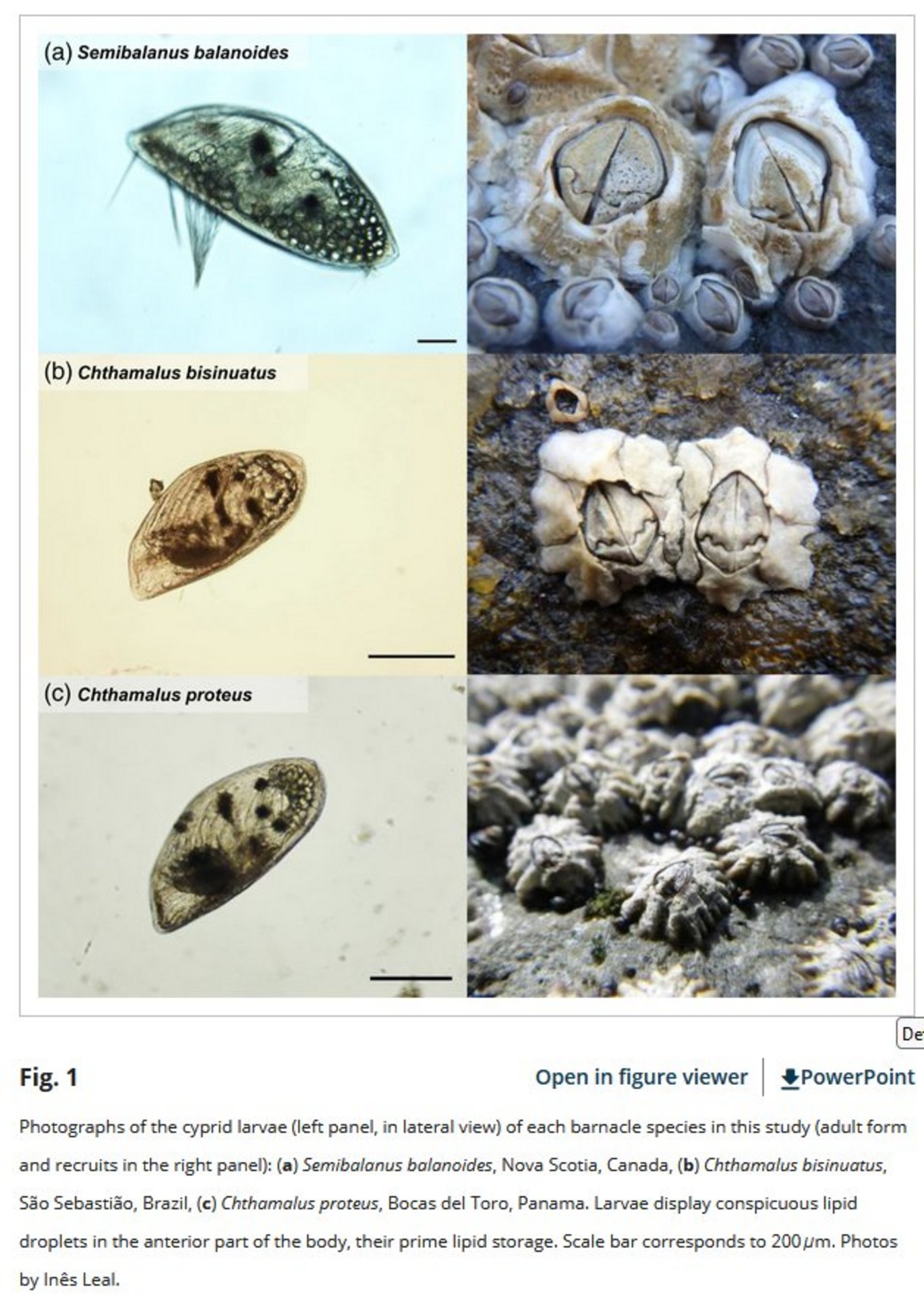Fatty acid composition as a function of latitude in barnacle cyprid larvae
New publication by Leal I, Thyrring J, Flores AAV, Archambault P, Collin R, Sejr MK et al.

Abstract:
Broadly distributed species need to perform well in a range of environmental conditions, but knowledge of how wide-ranging marine larvae perform along latitudinal gradients remains limited. The fatty acid composition of larvae is important for their physiological responses to changing conditions. Here, we investigated the fatty acid composition of the last, non-feeding stage of barnacle larvae (cyprids) using an integrative (larvae–environment) and comparative (latitudinal) approach. We measured fatty acids in the pelagic particulate matter and cyprids from Chthamalus bisinuatus, Chthamalus proteus, and Semibalanus balanoides from tropical to polar (Arctic) latitudes to identify potential food sources during the feeding larval stages (nauplius) that precede the cyprids and to ascertain larval capacity to integrate neutral (energetic) and polar (structural) fatty acids. We demonstrate that particulate matter in tropical waters mainly consisted of low-quality saturated fatty acids derived from detrital pathways, while particulate matter from polar waters was rich in polyunsaturated fatty acids originating from living microalgae. Across the studied regions, neutral fatty acids were assimilated from various food sources including diatoms, dinoflagellates, detritus, and microeukaryotes. Cyprids consistently retained higher essential fatty acid levels than the relative share in the particulate matter. Particularly, the essential docosahexaenoic acid (22:6ω3), which was scarce in the particulate matter, was highly retained across all species but highest for the tropical cyprids. We argue that this latitudinal pattern in fatty acid retention is related to periods of reduced nutrient intake, increased energetic and/or synthetic requirements, and responses to physical large-scale differences in environmental conditions.
